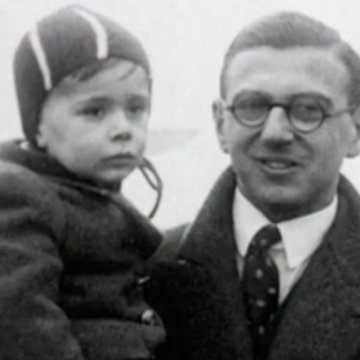- About
- Topics
- Picks
- Audio
- Story
- In-Depth
- Opinion
- News
- Donate
- Signup for our newsletterOur Editors' Best Picks.Send
Read, Debate: Engage.
Yesterday, Sir Nicholas Winton, a widely unknown heroic philanthropist, died at the age of 106.
At the beginning of WWII, Winton, saved 669 mainly Jewish children from Czechoslovakia, which was under occupation by Nazi Germany. In England he found new homes for these children and allowed them to start a new, safe life.
In 1939, Winton - a young stockbroker without any experience in humanitarian activities, Dr. David Silberklang, historian at Yad Vashem, explains - arranged train transports to carry out children from the endangered area to Great Britain. A worth watching BBC "60minutes" interview tells how he was struggling with both, Czechoslovakian and British bureaucracy to organize the "Kindertransports". To rescue as much children as possible he also wrote a letter to U.S. president Roosevelt, whose ambassador replied that "the United Stated government is unable" to accept any of those children. "What a pity", says Winton in his humble manner, "we could have saved more children."
But in his modesty he never talked about his deed and had it not been for his wife, who in 1988 by chance discovered documents about the whole operation, his act would be probably forever hidden from the eyes of the public and the saved children.
On the occasion of Winton's death, British prime minister, David Cameron, said: “The world has lost a great man. We must never forget Sir Nicholas Winton’s humanity in saving so many children from the Holocaust.”
It's not a big mental leap to think of today's refugee crisis caused by the Syrian war, other violent conflicts and widespread misery on the African continent. Amidst the biggest crisis after WWII, EU politicians are re-negotiating the community's disastrous refugee policy.
What a pity that today Great Britain is among those countries, demonstrating reluctance to increase their solidarity with people in need, and save at least more children.
Image: Nicholas Winton with a rescued little boy, Prague 1939 (Screenshot from BBC video)
